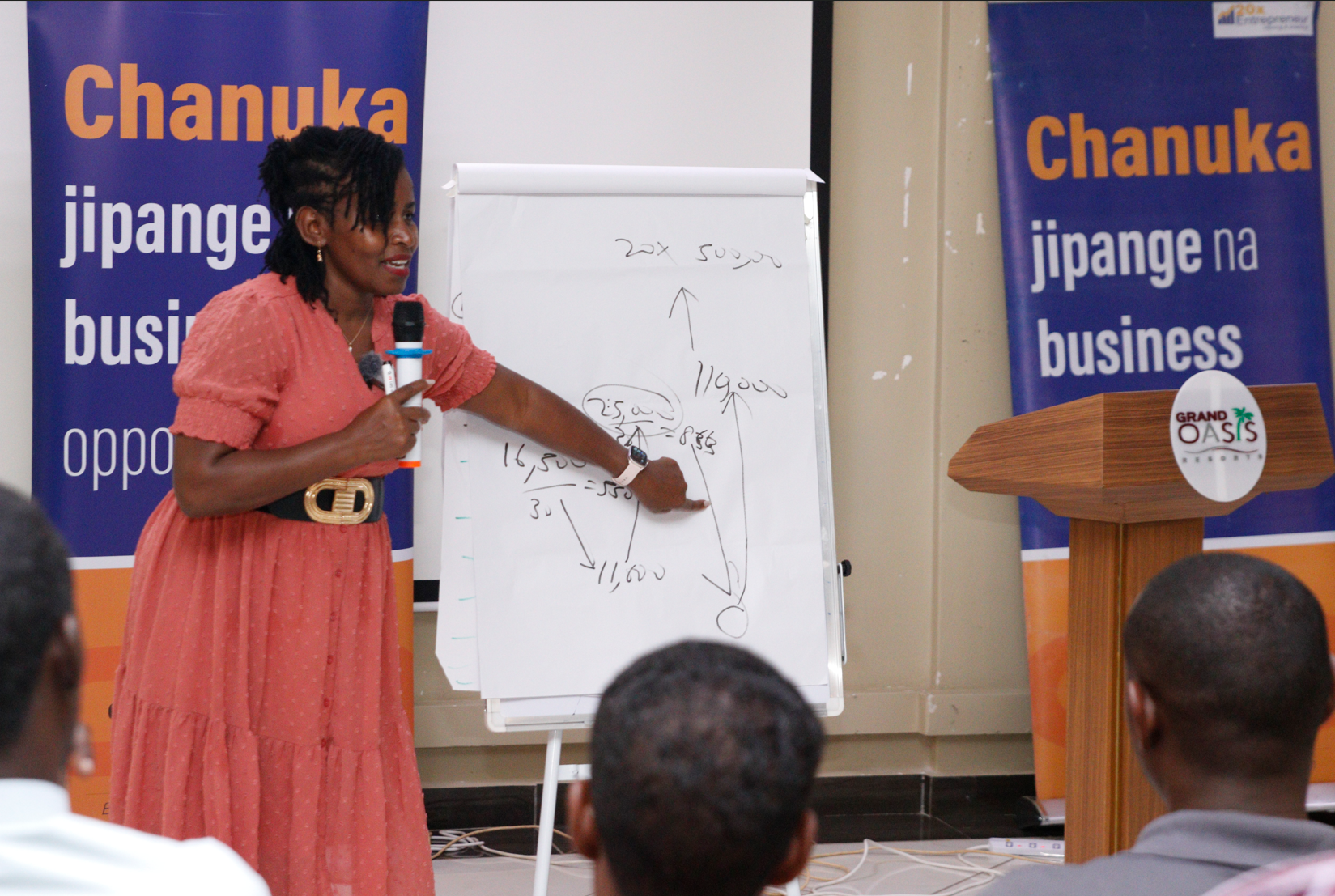 Eunice Mburu, CEO of 20X Entrepreneur, during the training in Wajir.
Eunice Mburu, CEO of 20X Entrepreneur, during the training in Wajir.
The training, led by Eunice Mburu, CEO of 20X Entrepreneur, inspired youth, artisans, and traders to adopt the 20X mindset —that money is not the goal, but the reward for value added. The more value they add, the more they earn.
Mburu said Wajir’s transformation has already begun with the construction of the Modogashe–Wajir road, part of the national Horn of Africa Gateway Project. She noted that the road would connect local producers to national and regional markets, creating opportunities in transport, construction supply, roadside hospitality, and logistics.
However, she emphasised, the opportunities extend far beyond the road. “The sunshine here can power businesses, livestock can become brands, and every borehole can be a business,” said Mburu.
“Every government policy is a hidden business plan if we learn to read it differently,” she added. Through the initiative dubbed Chanuka Jipange na business opportunities, the team highlighted growth areas in solar energy, water innovation, livestock value addition, tourism, and digital services, all aligned with Kenya’s Bottom-Up Economic Transformation Agenda (BETA). Contrary to insecurity narratives, the trainers found Wajir to be safe, paved, and well-organised.
However, the team also noted that Wajir’s faith-driven community often avoids interest-based loans, viewing them as un-Islamic.
“Faith is not a barrier to enterprise — it’s a framework for integrity,” Mburu said. “We recommend that financial institutions design faith-aligned products that allow micro and small enterprises in counties like Wajir to access capital without compromising their beliefs.”
As the sun set over Wajir’s wide plains, one message echoed through the desert wind: Kenya’s opportunities are already here — they only need belief, creativity, and courage to act.
The Chanuka Jipange movement continues to tour counties across Kenya, turning everyday challenges into business opportunities and reminding Kenyans that there are no poor counties, only untapped ones.













